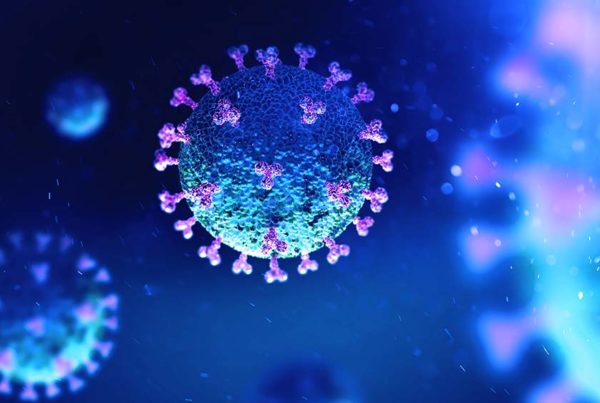
The gut is the gateway to good health and fitness, and good gut bugs — micro-organisms humans have hosted for millions of years — improve function not only in the intestines, but throughout the body and even the brain. Wholesome food is the foundation of getting and keeping the right gut bugs — and dirt may help, too!
The human gut is home to a hundred trillion microorganisms, give or take, including thousands of different species of healthy bacteria. The balance of these bugs is real important for health, and the gut’s environment is the key to keeping them happy.
Yeasts, viruses and parasites, along with unfriendly bacteria, are among other visitors to the gut, but they don’t cause trouble when healthy bacteria dominate.
In adults, about 60 percent of friendly bacteria belong to the phyla Firmicutes and Bacteroidetes, with the rest Bifidobacterium, Lactobacillus, Bacteroides, Clostridium, Escherichia, Streptococcus, Ruminococcus — and many others you may see listed on bottles of probiotic supplements. But as discussed below, with so many strains it’s best to let the gut grow the bacteria it needs naturally, obtaining them from the foods — and dirt — we ingest.
While most children go through a phase of intentionally consuming soil, all children and adults ingest small amounts regularly. Soil ingestion, called geophagy, is the consumption of dirt. It results when eating food not thoroughly washed or prepared with dirty hands. Most food was near or in direct contact with soil such as in the garden or from a farm, so it’s no surprise some of it is still there, despite washing. Dirt brought into the house on our shoes and clothes, or from outdoor pets, also sometimes ends up in our food. Some people even eat dirt by consuming food dropped on the floor or other surface.
Due to many beneficial friendly bacteria in soil, geophagy can be good for the gut. However, in some cases food poisoning can occur due to unfriendly bacteria, although most of this is due to contamination by humans or other animals.
A healthy gut environment that grows good bacteria is associated with better brain and nervous system function (including behavior), metabolic (including hormones) and immune health (much of this system resides in the gut) and, of course, the work of the intestine itself in digesting food and absorbing nutrients.
In short, there are good gut bugs, who are our friends, and bad bugs that cause trouble. An imbalance of bugs can trigger a wide range of problems inside the intestines, including inflammatory bowel disease, ulcers, irritable bowel syndrome, heartburn, bloating and excess gas, constipation and diarrhea, celiac disease, and food allergies. These can cause other problems throughout the body, contributing to fatigue, brain fog, reduced immunity, diabetes, cancer — even the development of excess body fat.
In the Beginning
At birth, we establish our gut bugs, called microbiota, through the food consumed, with breastfeeding being ideal. The process can be significantly influenced by the mother’s health, birthing delivery, the use of drugs, especially antibiotics, and other foods and water. The introduction of solid food months later is the next significant influence on gut bugs, with stress and drugs affecting the gut’s environment. These activities have lifelong impact on the gut’s ability to be home for healthy bugs. As adults, we can also influence the process, primarily through lifestyle.
The good gut bugs primarily reside in the large intestine, although other areas such as the mouth contain them; bad bugs sometimes can appear anywhere if gut function is poor.
As digested and undigested food, especially plant fibers, pass into the large intestine, it is fermented by gut bugs. These bacteria produce some very important byproducts, including vitamin K, some B vitamins and biotin, along with certain fats, which regulate the gut pH and generate energy for gut function.
Antibiotics, the lack of adequate fiber and excess carbohydrates are some reasons bacteria in the large intestine can change to a less-friendly and often harmful type. These bacteria can produce metabolites that are absorbed into the blood stream and can adversely affect brain and body function.
There are many therapies used to encourage good gut bugs. In addition to the many probiotics on the market, prebiotics (food compounds like fibers to help the gut environment) including other traditional fibers like bran or psyllium, cultured foods, such as yogurt (some contain more sugar that ice cream) and kefir or any other “gut support,” may not be effective. The idea that bacteria can affect health has led to fecal microbiota transplantation, a treatment where a small amount of feces from one healthy person is transferred to the gut of an unhealthy person. But all these approaches are less effective, or in some cases even completely ineffective, without an important foundation of a good gut environment — food.
Knowing that gut bacteria are out of balance is an important step to improving health. Reduced intestinal health is usually indicated by gut discomfort, constipation or diarrhea, heartburn, or disease, and usually infers a lack of good gut bugs. In addition to these signs and symptoms, two others are important:
- The bulk of the waste leaving the body is greatly influenced by gut bacteria. In some cases, up to 40 percent of the stool is attributed to friendly bacteria. Reduced stool volume may be an indication of poor micro-organism population; improved bulk indicates a healthier environment.
- Odor is another common sign. While stool (or gas) odor is never pleasant, significantly bad odor indicates unfriendly bacteria. A reduction in odor and excess gas can indicate better gut health.
While digestive problems have traditionally been observed to rise with age, today they are very common in adults of all ages, as well as children. The reliance on over-the-counter and prescription medications has increased dramatically, which can further increase the risk of intestinal disturbances due to their side effects — especially the abuse of antibiotics, which can kill the good bugs and eventually allow bad ones to take their place. Antibiotics hidden in foods also is a problem.
Fix your bugs with healthy food
First, do no harm. I can’t emphasize it enough: The first step in getting a healthy gut is eating healthy food. This means no junk food. This includes grains and other starches, along with sugars such as sucrose, maltose-based sugars, and corn sugars. Highly processed carbohydrates may be the worse foods for the gut. Eliminating these foods alone can fix many — if not most — gut problems, in great part because it allows the body to restore healthy gut bugs.
It is well-established that food influences intestinal microbiota. The most common symptom that they are troublesome is intestinal bloating and nausea. Those performing the Two-Week Test often report significant reduction in these symptoms. But these problems can occur even with natural carbohydrates if eaten in excess, or if food is not thoroughly chewed and allowed to mix with saliva to assist in digestion.
Here are some key foods that contain healthy bacteria and/or create the right environment for good gut function:
- Plant foods — 10 a day is a good guide.
- Eat fermented foods daily. These include cabbage (sauerkraut, kimchee), and other pickled foods such as cucumbers and garlic. Healthy dairy that’s fermented includes yogurt and kefir (without the sugar), sour cream and cheese.
- Eat organic to reduce unwanted chemicals, including antibiotics.
- In addition to refined carbohydrates, avoid all junk food, unhealthy for the gut.
Stress
Any stress — physical, biochemical or mental-emotional — or combination of these, as is often the case, can quickly affect our sensitive gut. Sometimes symptoms are delayed, but often it’s felt immediately. Don’t think you’re affected by stress? Research has long shown that any stress affects the gut first — felt as that “pit” in the stomach, queasiness or nausea, or lost appetite. Even constipation (the most common gut problem in adults and children) or diarrhea is typically stress-related. Stress can quickly impair the gut’s environment to grow good bacteria; which means the bad bugs take over. Stress before, during or after meals is particularly harmful for good gut function.








